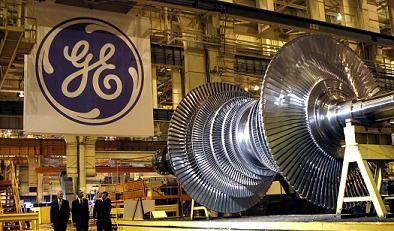General Electric Earnings: Is GE’s Stock Headed to $25 and Beyond in 2012? - Stock Review
ANALYSIS

Is now a good time to consider the shares General Electric (GE)? The view from here argues it is and the company is worth a review.
Diversified, industrial giant GE posted third quarter earnings of 31 cents per share, excluding one-time items, and the performance was in-line with the Reuters consensus estimate.
Now, Europe's leaders may be taking a roundabout way of resolving its sovereign debt crisis and Democrats and Republicans in Washington may be trying to be the modern day version of the Union Army and the Confederacy, but don't let that delude you in to thinking the global economic recovery is over. It isn't, and GE's latest quarterly performance indicates that the expansion continues, and that bodes well for owners of GE (and much else besides). General Electric's shares closed down 32 cents Friday to $16.31.
GE: Emerging Market Industrial Orders Continue to Impress
Connecticut-based General Electric posted strong, industrial growth in the third quarter. Consider: orders from China were up 65 percent; India, up 25; Latin America, up 15 percent; Russia up more than 100 percent! Translation: GDP growth in emerging markets remains better-than-adequate to very good.
Overall, General Electric's order backlog rose to a record $191 billion through Sept. 30, up from $189 billion at end of the second quarter, June 30. The company had $91 billion in cash on its balance sheet as of Sept. 30.
What's more, conditions at the housing bust-hurt GE Capital unit continue to improve. The unit, which started being regulated by the U.S. Federal Reserve in July, expects to resume its dividend payment to the parent GE company in 2012. The unit's Tier 1 common ratio -- which regulators use to gauge financial strength/health -- increased to 11 percent from 10.4 percent in the third quarter.
Look for GE's energy infrastructure, consumer/industrial, technology units to post revenue increases in 2011, boosted by both emerging market and developed-world demand and order increases. GE should record impressive gains in oil and gas products, health care imaging, and airplane engines.
The Thomson Reuters First Call FY2011/FY2012 EPS estimates for GE are $1.38 to $1.59. Each EPS estimate looks about 5% low, according to my analysis
Technical Analysis: General Electric's shares formed a bear hug this spring at about $22, dropping to roughly $14.85 in August. But there, the market's institutional investors said you'll drop no further, GE and the shares continually held support at/near that level over the next two months. This autumn the shares have popped back over the $16 level, including a move back above the key, 50-day moving average. General Electric's shares should trade above $20 in the winter 2012, and above $25 by the end of 2012.
Stock Category: General Electric is ideal for anyone wants a moderate-risk, diversified industrial play. If you don't own a mutual fund, and you by GE, you have a mutual fund in one company. Further, there are stock plays, and then there are those rare stocks that you buy for child's college fund, and in 10 years, you're really glad you did. I like to call them 'stocking-stuffer stocks' for the holiday shopping season, and General Electric is one. GE pays a 60-cent annual dividend, good for a 3.7 percent yield at the current $16.31 share price.
2011 Outlook: I view as General Electric as a long-term play, but if you're looking to sell GE within the year, it's probably best to take your profits after it rises to $19.-19.75, if it fails to rise above $20.
Stock Analysis: General Electric is a moderate-risk stock. If an investor has already purchased the company's shares, I'd hold them. If not, I'd consider buying a 50% position in GE now; then buy another 25% in one month, if global economic conditions don't worsen substantially. Under any circumstance, I wouldn't buy more than 75% of my GE position before January 2012 and I'd put a sell/stop loss at: $7.50.
- -
Disclosure: L.C. Jacobs of New York, N.Y. reviews stocks on a quarterly, semi-annual, and annual basis.
L.C. Jacobs has no positions in stocks reviewed, but does own federal, municipal, and corporate bonds.
© Copyright IBTimes 2025. All rights reserved.





















